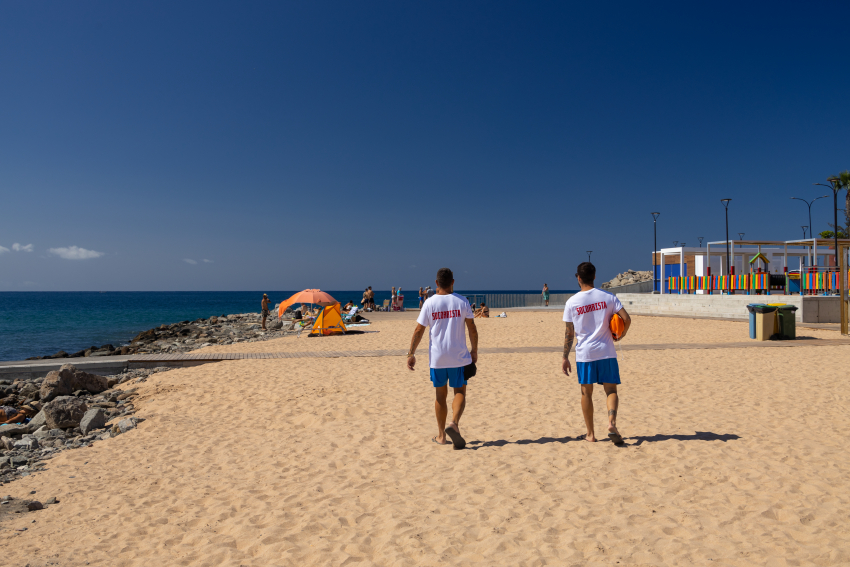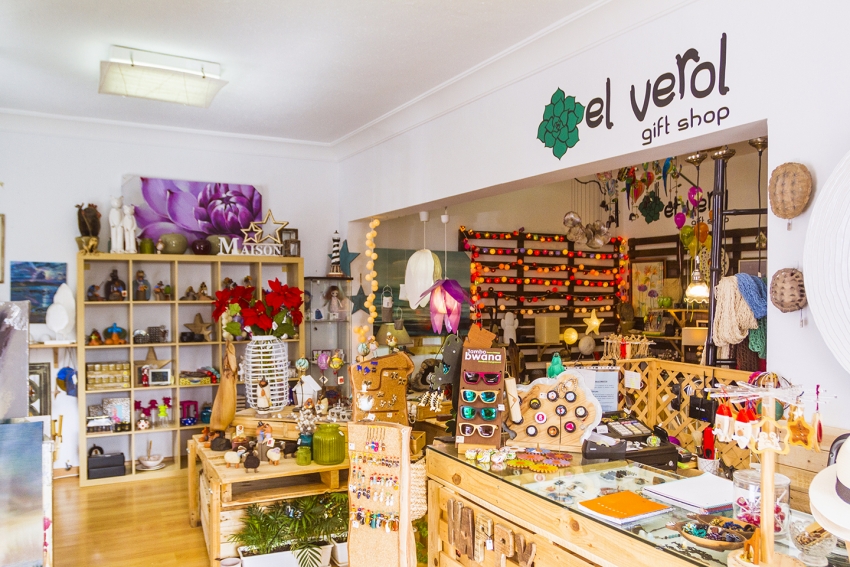Living In Gran Canaria: Finding A Job
Everyone wants to move to Gran Canaria, find a good job and live the sunny life. It can be done, but we’re not going to kid you that it’s easy. Gran Canaria is a small island with lots of local unemployment.
This means that there aren’t lots of large companies with middle-management structures and there is fierce competition for the jobs that do come up.
Your chances of getting a job in the local economy are pretty much zero unless you speak excellent Spanish. And you can’t just walk into a job in a hotel either. Most won’t take a candidate unless they speak at least three languages and have a tourism qualification or degree.
That said, determined people find work here every year, and there are several niches where foreign residents can always find work.
So you want a job, read our guides below to see what jobs are available and how to get them.
UPDATE 2022: Remote work, nomads and coworking
Job prospects for foreigners in Gran Canaria, and especially in Las Palmas, have improved no end in the last few years thanks to the growing remote worker and digital nomad scene. Focused around coworking sites dotted all across the city and beyond, the scene has now grown enough to create its own employment ecosystem. The hope is that ZEC company investment will flow in and make even more of a Gran Canaria a leading remote work and offshoring location.
That said, the work available is almost all digital; in the programming, online project management, etc. The nerds have arrived, and are taking over!
Spain's tax rules are a little behind when it comes to people residing in Spain but earning their living abroad so talk to a gestoria about how to get your taxes right.
Jobs in North Gran Canaria (Las Palmas, Telde etc)
Once you arrive in Gran Canaria you will find that most English speaking people in Las Palmas are teachers, so logically most of the jobs for English people are in schools. If you don’t want to be a teacher, you’ll probably have to head south to find a job as there aren’t many non-school jobs in the city. That said, the island has now probably reached peak English and teaching wages for TEFL teachers have dropped in recent years.
Teaching There are four types of teaching jobs each one requiring different qualifications and offering different pay.
English schools – These schools, most of the time, require a PGCE. However, it is not unheard of for unqualified people to get jobs. Send in your CV and see what happens. If you’re lucky they will need a teacher straight away. Monthly salary 1200€-1400€ depending on the school and job.
Bilingual schools – These schools don’t usually require PGCE qualified teachers but a TEFL qualification helps. They pay less and working conditions aren’t as good, but you get the long holidays. Salary approximately €1200.
Language schools – Language schools pay less and the working hours can be quite unsociable however they pay well enough to live a nice life here and can be flexible with working hours if you’re lucky. Salary/hour 9-15€.
Private English lessons – Plenty of teachers make a decent living by giving private English lessons. Either to children, adults or local companies. They key to getting them is to network and hustle like crazy. Pay can be anything from 10-50 euros per hour. Most private teaching work dries up in the summer.
Read our detailed guide to Gran Canaria’s schools and education system for more info.
Saturday Schools All the English Schools and the American school offer Saturday schools for children and adults. They pay very well €60-€80 9am -1pm. If you are interested contact the schools well before the course starts in October as Saturday jobs go fast. TEFL is preferred but it is not uncommon for non-EFL teachers to get work.
Translation If you speak two languages fluently it is worth sending out your CV to the translation companies. However, regular translation work isn’t easy to find and you need a qualification to translate official and legal texts (known as traducción jurado).
Summer schools: Lots of Las Palmas’ academies and surf schools run summer schools so it’s always worth asking around if you want work in July.
Random work in Las Palmas: Non-Spanish speaking work is hard to come by but labouring work can sometimes be found within the English community. It’s not easy to come by, but leave a message on the jobs page and something may come up. Other jobs that English people have had in Las Palmas include STEP / Aerobics instructor and bar work.
There are, of course, lots of foreigners living and working in Las Palmas who aren’t teachers. It’s just that most came to the island with their jobs. In the last few years the digital nomads have discovered the city and now hang out at cafes with their laptops (pretending to work). If you have a tech or design skill and want freelance work, drop in at coworking spaces like The House and Soppa de Azul and ask around. The same applies if you have a killer idea for an app.
How to get work in the north
Assuming you want to teach, the only real way to get work is to get yourself known. Send your CV to all the schools / language schools you’re interested in and then phone them (v.important) to make sure they’ve received your CV. It also helps to ‘just drop in’ to the schools you most want to work at.
If you want to teach private classes put posters up around your area and advertise yourself in the English bookshops Idiomatika and Canary Books and on the Internet at Tusclasesparticulares. Get business English lessons by dropping into to local businesses that sell to foreign clients and asking if they know anyone who might be interested.
Seriously, networking in person works in Gran Canaria while emails are rarely answered.
Jobs in south Gran Canaria
There are plenty of jobs in the South but you have to look for them; as Gran Canaria is such a great place to live there are plenty of other people looking too. Thousands of foreign residents arrive every year without work.
Websites / Press Jobs are not often advertised but before you begin your long trek around the thousands of bars in the south it is worth scouring the internet and resident newspapers and magazines.
PR If you think you’re a good salesman with experience of any kind and you speak English, Dutch, German or any Scandinavian language your best bet is find a job as a PR. These tend to be on the street directly selling to passers-by. You could be selling restaurants, bars, tours or timeshare. If you're good you can earn good money, if you’re not you’ll soon be looking for another job! Salaries can be commission only or with a basic set wage. To find a job, the best thing you can do is go and ask. Try bars and restaurants and for timeshare jobs find a current PR on the street and ask for the personnel office. It might sound unbelievable but timeshare sellers still make good money in south Gran Canaria. The gift of the gab is essential.
Bar work and restaurant work There are jobs for bar staff, waiters, cooks, entertainment, bouncers, and PR – they are rarely advertised and again just go around and ask. Don’t expect to make your millions this way, the minimum wage in Spain is 6.25€ and you’ll be lucky to get more than that. On average workers in the South will earn about 1050€ a month which is plenty to survive on and have a reasonably nice time.
Estate agencies Property buyers still prefer to deal with agents who speak their language and understand their needs. So, there is always work in south Gran Canaria’s estate agencies for go-getting people with sales or real estate experience. Quality south Gran Canaria estate agency Cárdenas Real Estate have been looking for English- and Norwegian-speaking staff.
How to get work in the south
There is work in the south of the island but there are more people looking for jobs than there are jobs, so to find work you have to stand out above the rest. Prepare a GOOD cv. Make sure it sells your skills well and is word-perfect. If you want to work in a bar make sure you have all your bar work on it.
Then give your CV to as many places as possible by hand. Speak to the owner and try to sell yourself, it will be much easier for them to call you if they know who you are, so make sure there’s a photo on your CV. If you haven’t heard anything for a couple of weeks visit all the bars again and let them know you’re still looking for work. Also, get to know people in the foreign community as many jobs are by word of mouth and personal recommendation so if you are known you will have more chance of finding work.
Finding a job may take a long time, so prepare yourself financially and don’t blow all your savings thinking you’ll get work quickly. If you have patience you will get work eventually but prepare to print out hundreds of CVs and many kilometres from place to place. While you’re waiting, try to learn Spanish it will really help your job opportunities.
Paying your taxes in Gran Canaria
Most jobs you get will offer you a contract and they will pay your taxes for you (about 20%). However, if you are self-employed or are receiving cash in hand, legally you have to pay autonomous contributions. These are about 270€ a month (less for the first couple of years) and cover your social security. You have to declare your earnings and pay taxes every three months or once a year, depending on the job.
Lots of south Gran Canaria businesses just pay cash. While it is unlikely that the taxman will catch you, be aware that it is illegal.
Getting a work permit in Gran Canaria
It’s become much harder to just arrive in Gran Canaria, get residencia and start working unless you are an EU citizen. In fact, it’s almost impossible. Spain now only hands out residencia and an NIE number to people who have a job, buy a property or have lots of money in the bank. In theory, you can only stay in Gran Canaria for three months unless you get residencia.
This means that if you come without work you need to find a job before you can become a resident and get an NIE (which you need to rent a property, open a bank account, etc). It’s a bit of a chicken and egg situation but if you have a work contract, you can get it done.
Gran Canaria Info recommends:
- Default
- Title
- Date
- Random













